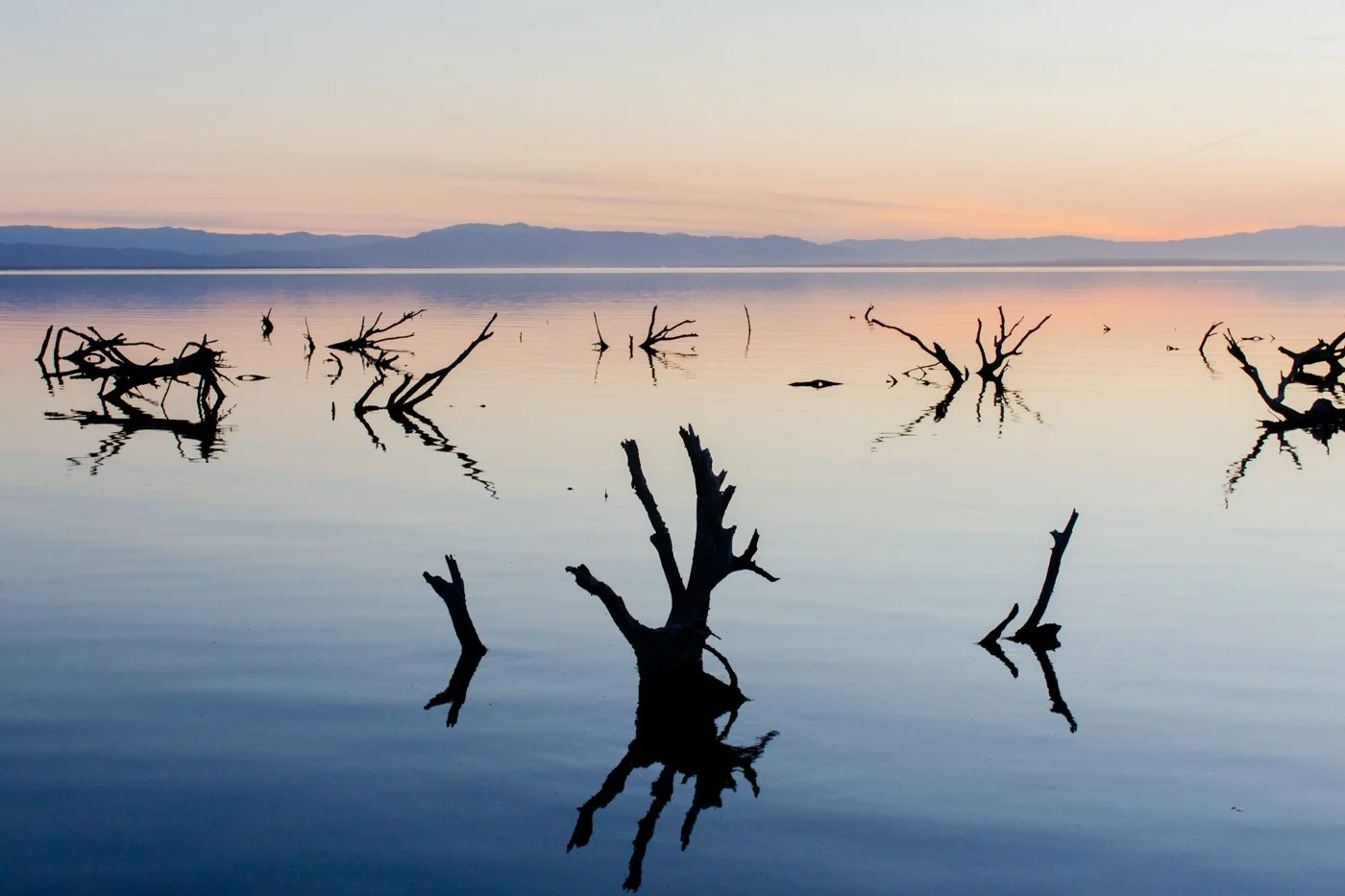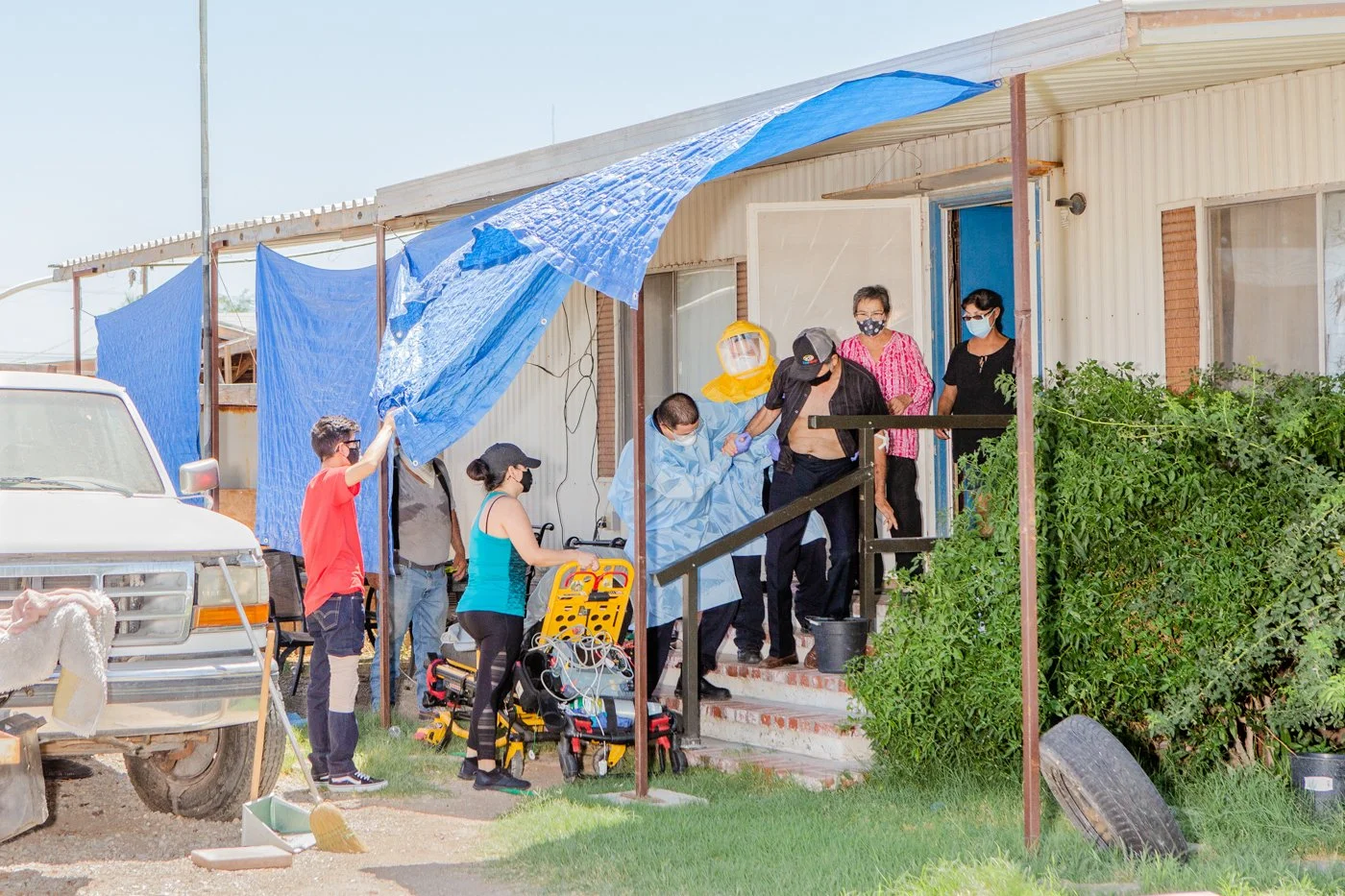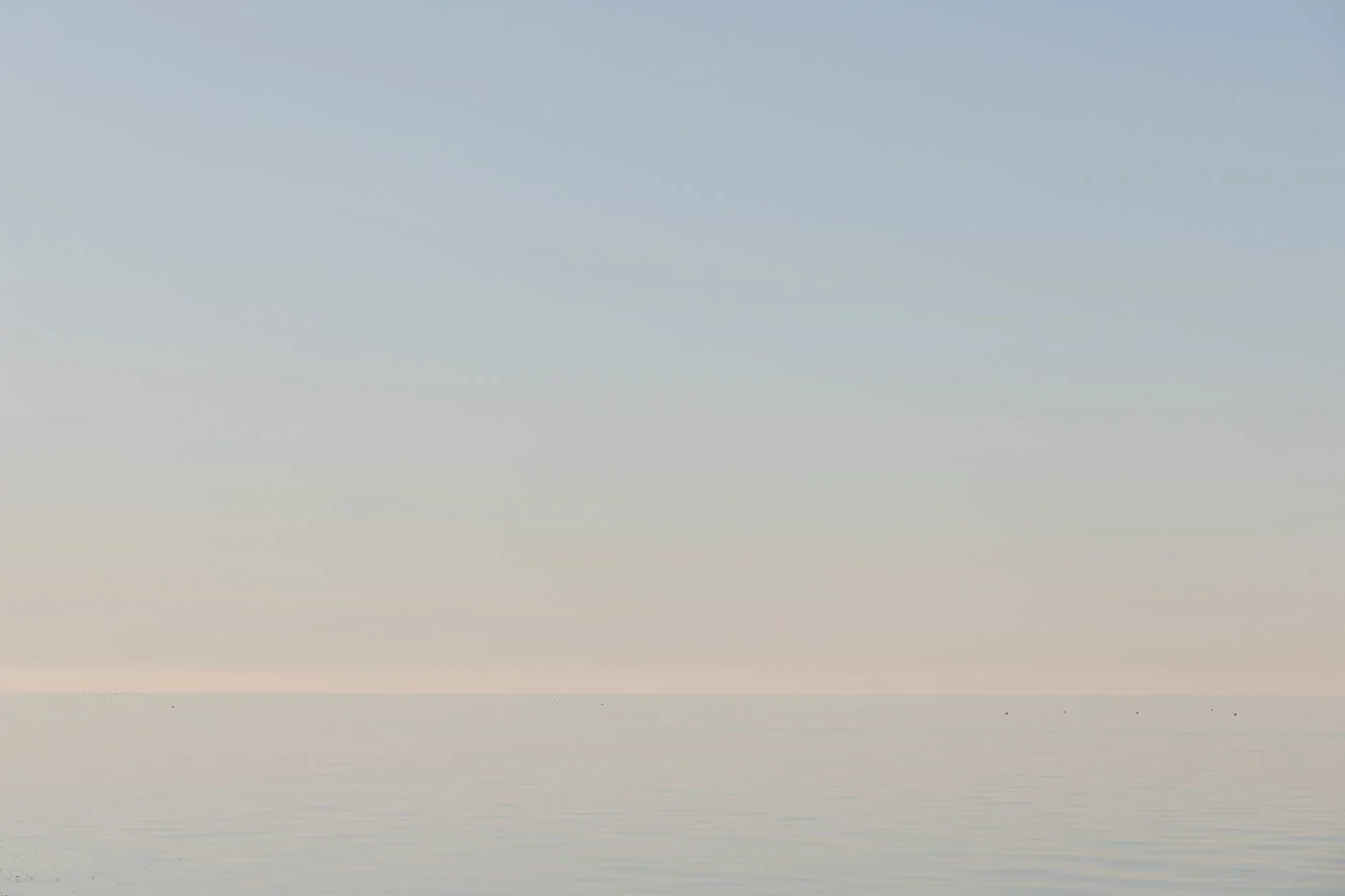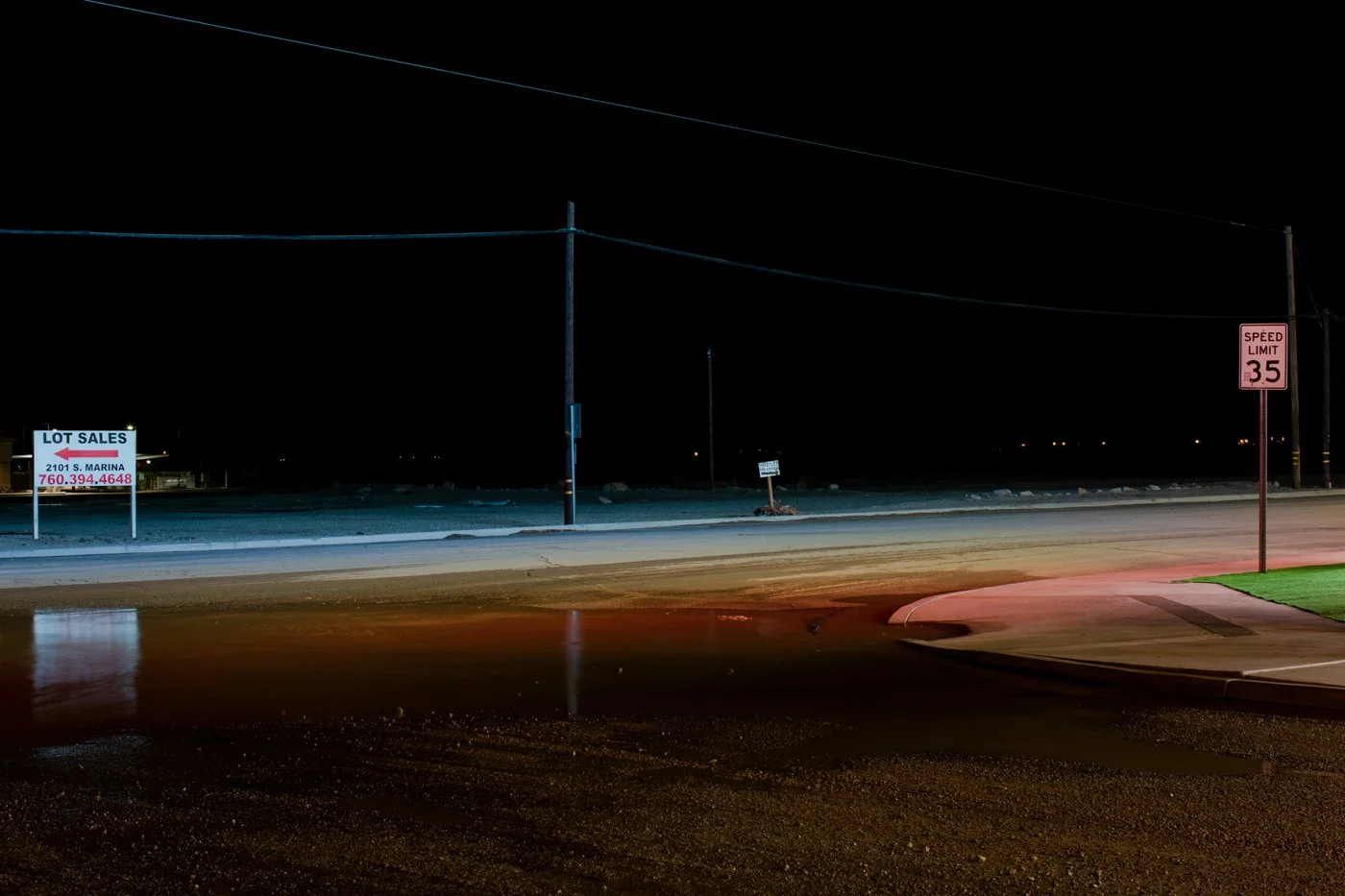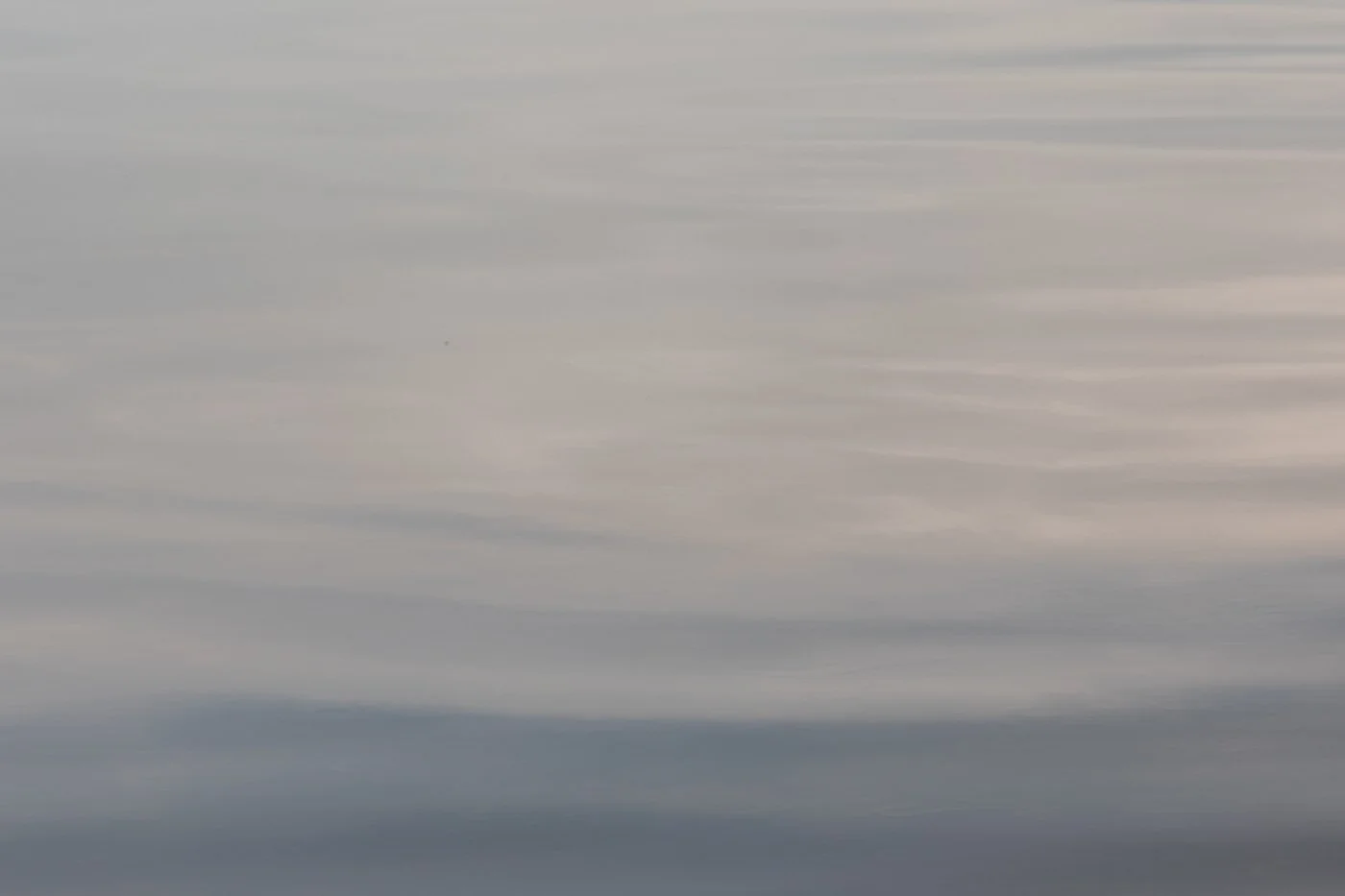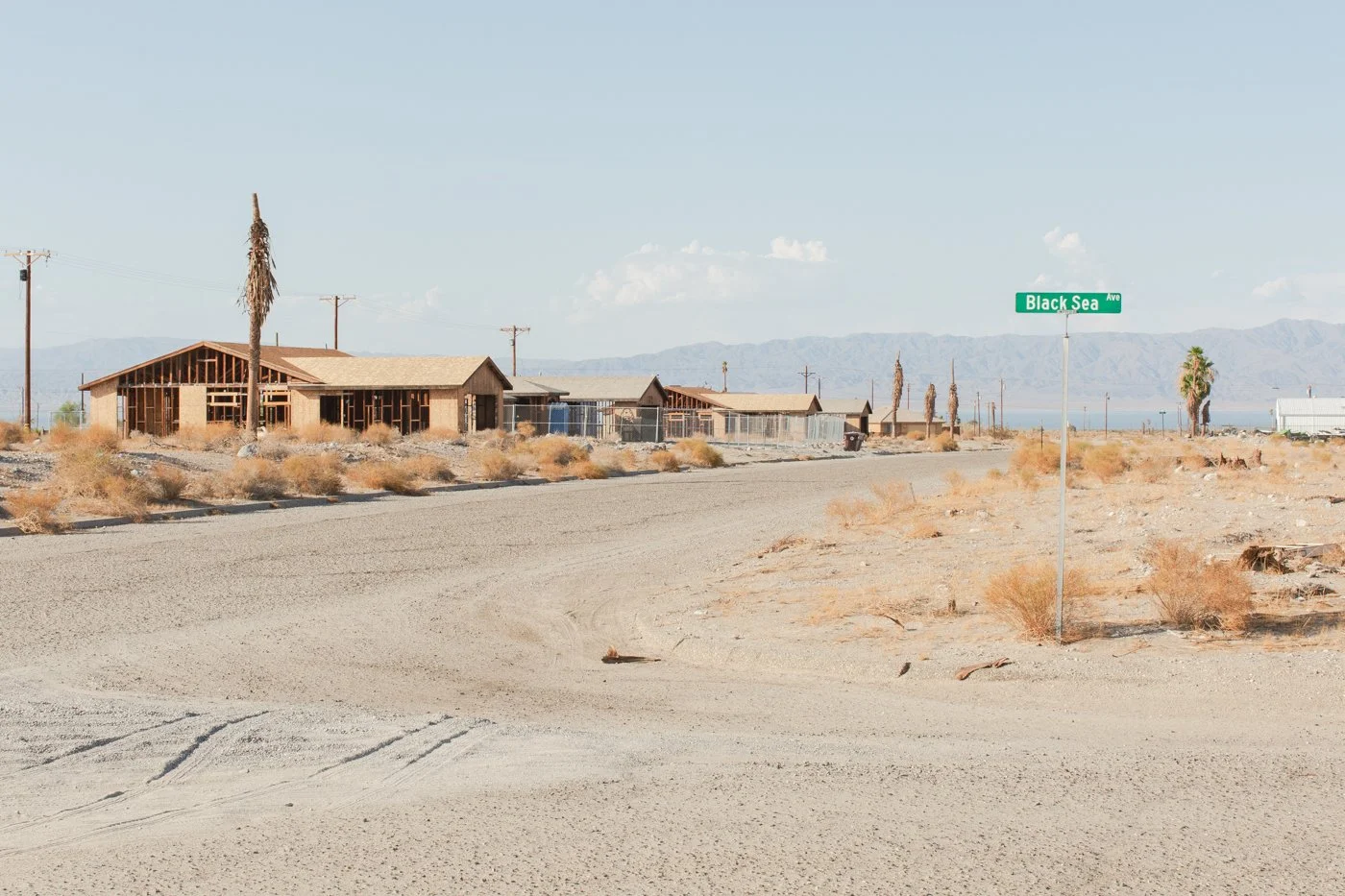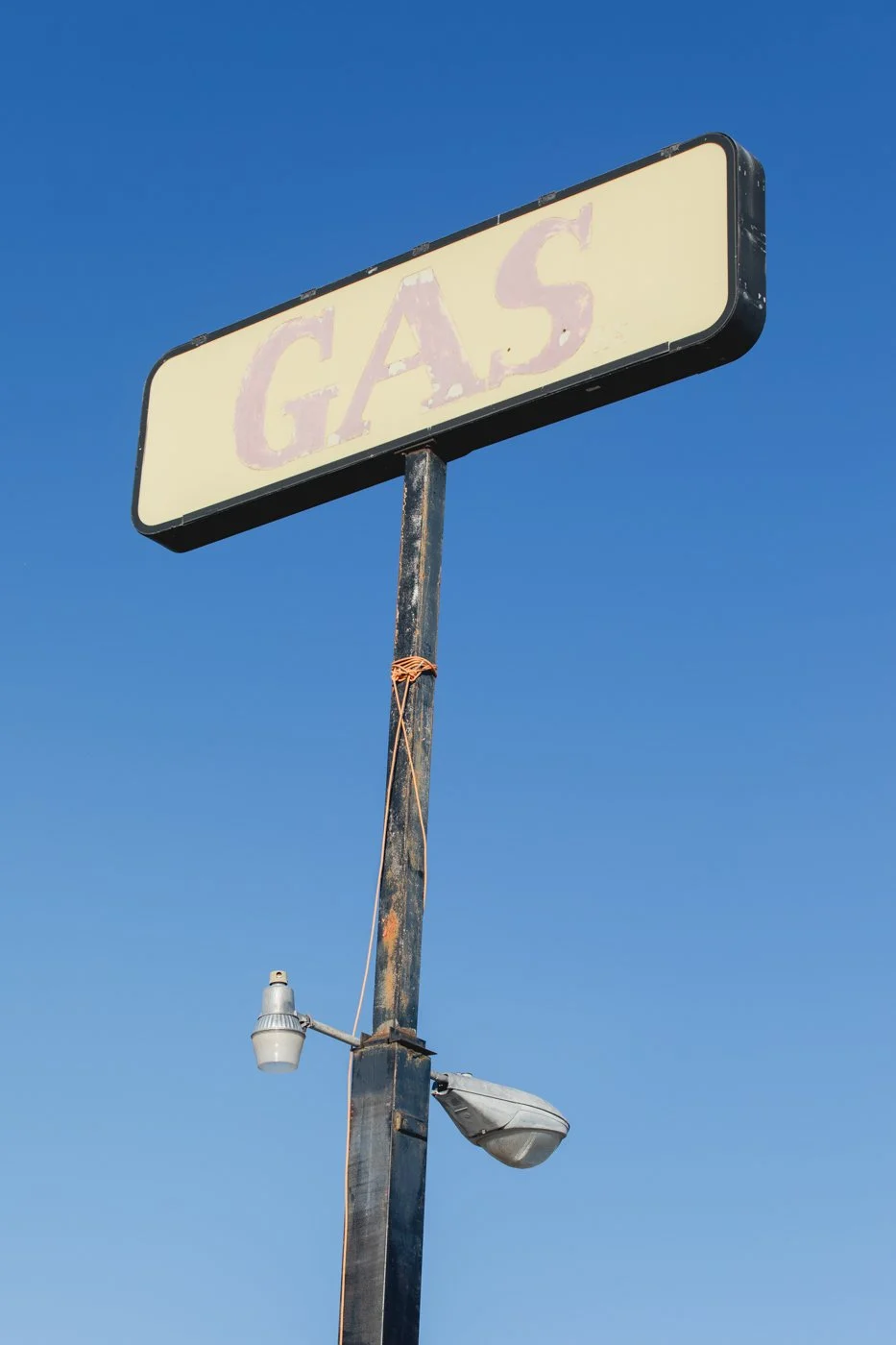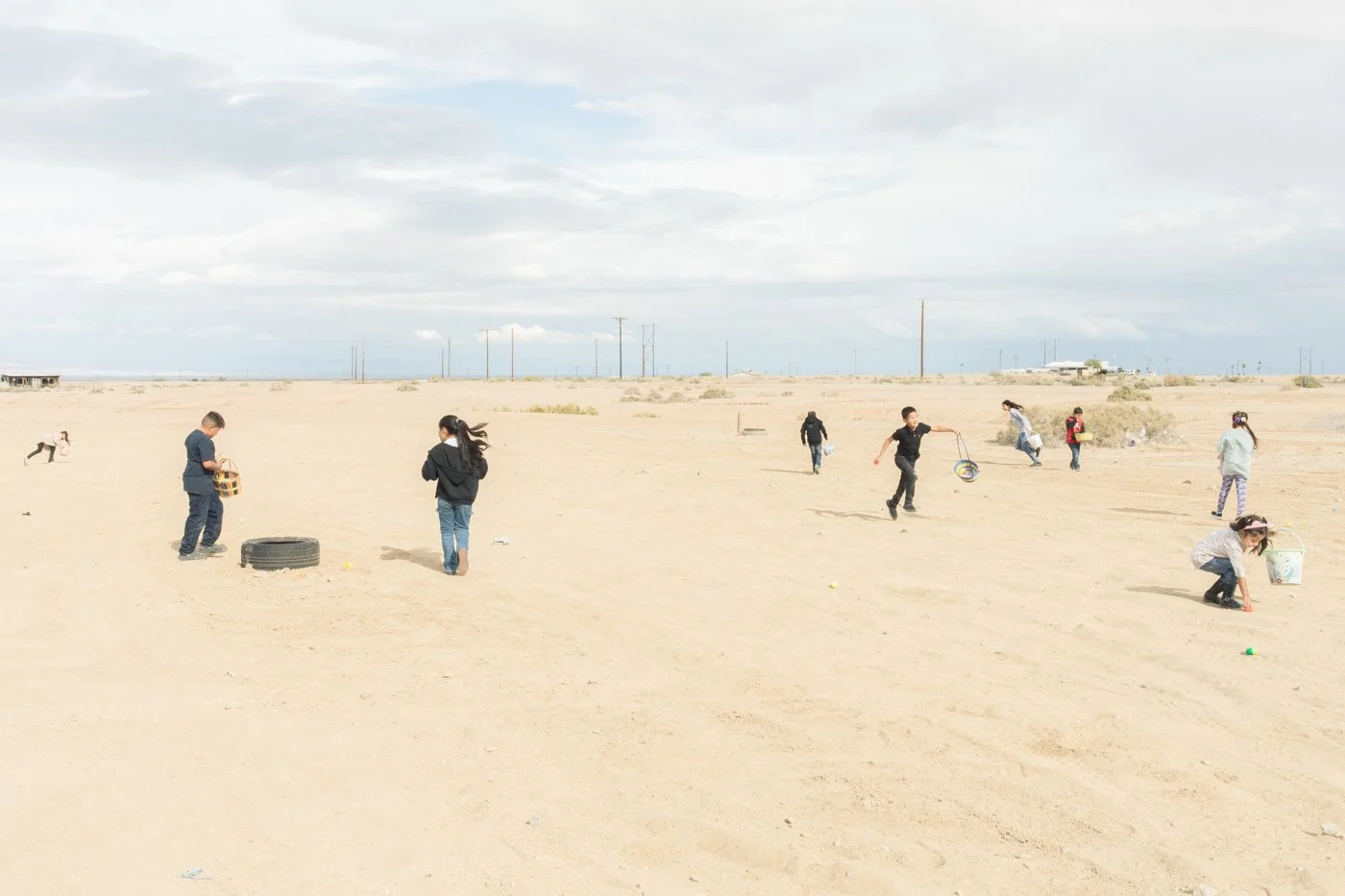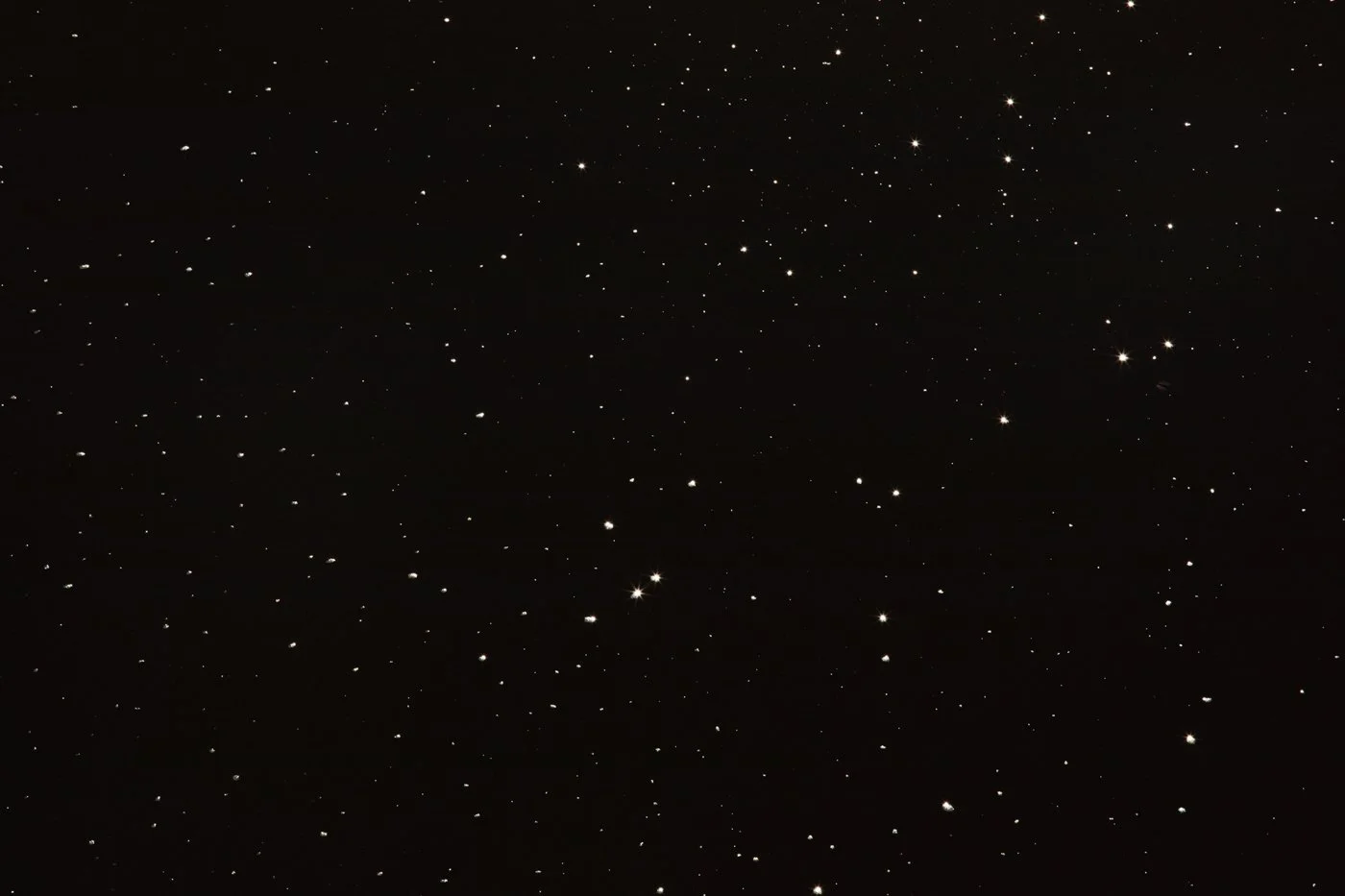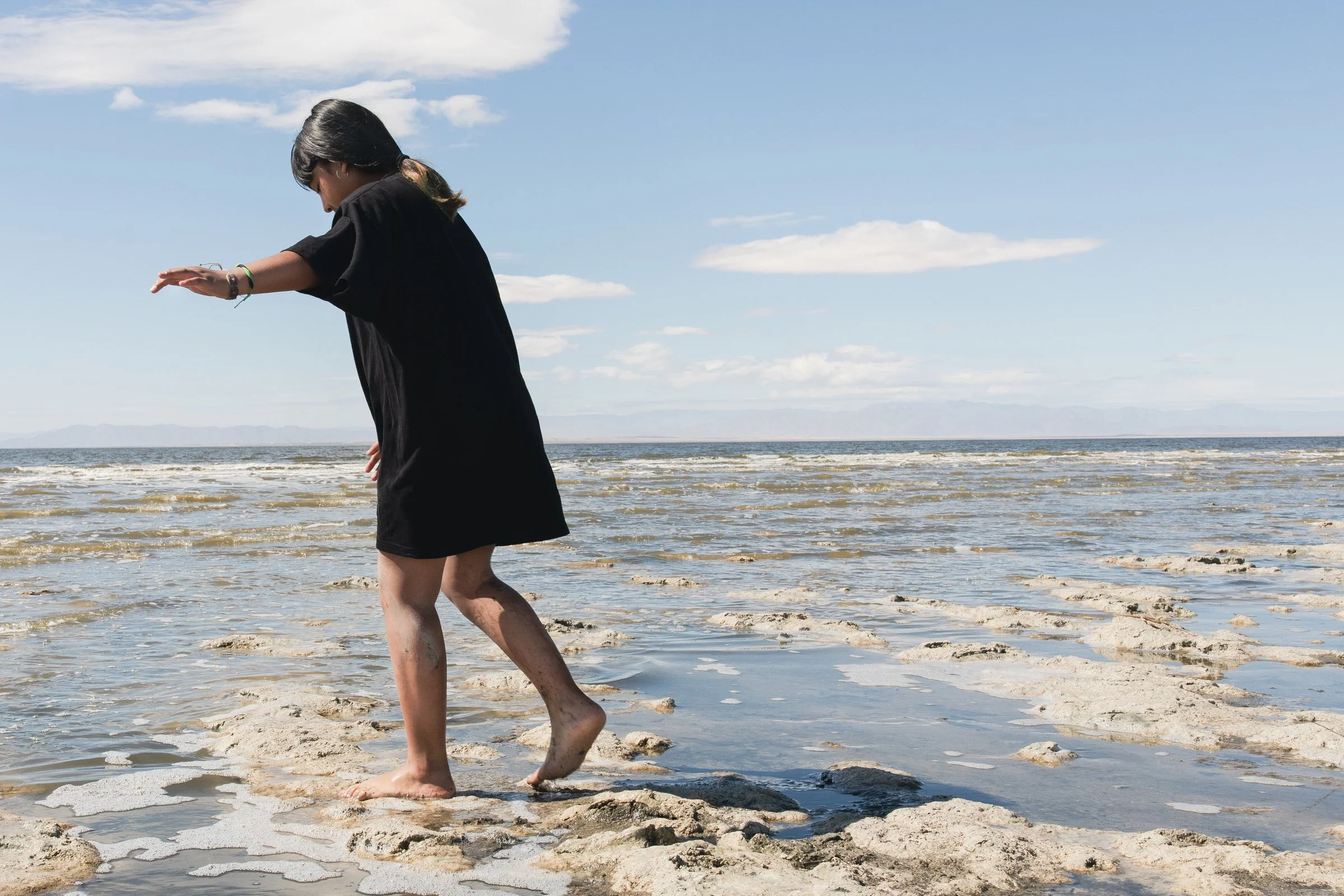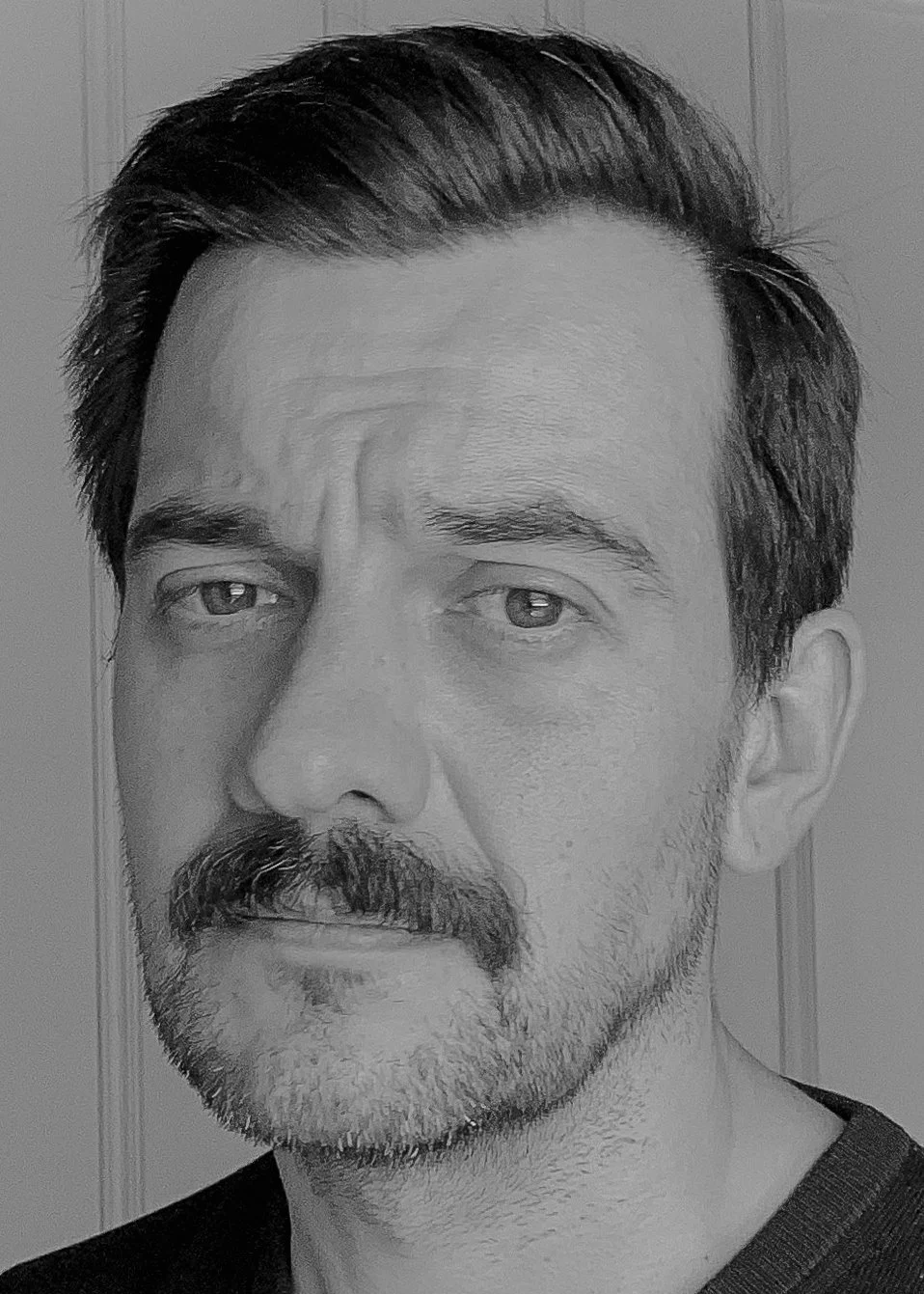ENVIRONMENTAL AWARD
RECIPIENT • Alex Welsh - Salton Sea
JUROR • Alice Gabriner – The Center for Contemporary Documentation
-
As drought fueled by climate change batters the American West, evaporation and a decreased inflow of agricultural runoff from surrounding farms are causing California’s Salton Sea to shrink. Today, the state’s largest and most polluted lake teeters on the brink of ecological collapse. Residents living in its vicinity face the threat of toxic dust. As the soil dries and the winds stir, the lake’s parched shores emit hazardous dust laced with arsenic, selenium and pesticides—remnants of a century's worth of agricultural runoff. Respiratory illness in the area is already widespread, and in Imperial County, children visit emergency rooms for asthma-related symptoms at double the average statewide rate. The lake’s future now stands at a precipice: protracted drought and reductions in inflow from the overextended Colorado River threaten to accelerate the beleaguered lake’s decline. If the shoreline continues to recede, an estimated 100 tons of lung-damaging dust could blow off its shores daily by 2045.
The circumstances at the Salton Sea represent a microcosm of an alarming global phenomenon: Earth’s largest lakes are drying out. According to a 2023 study published in the journal Science, over half of the planet’s large lakes have diminished in size over the last three decades, and approximately one-quarter of the population worldwide currently resides in the basin of one of these shrinking water bodies. Terminal lakes—landlocked bodies of water that have no drainage like the Salton Sea—are particularly vulnerable to climatic and agronomic stressors. A combination of evaporation and water diversion has caused Lake Chad in Central Africa to shrink by 90%, leaving behind a desert region that is currently one of the largest sources of dust on the planet. Lake Urmia in northwest Iran has diminished to 10% of its former size, and both the Aral Sea in Central Asia and Lake Poopó in Bolivia have completely disappeared.
Expansive and productive farmland surrounds the Salton Sea. Home to a large population of Latinx and Indigenous Mexican agricultural workers, the region is one of the most environmentally burdened and economically disadvantaged in California. My project is a photographic examination of the interrelated environmental and public health crisis unfolding as a result of the shrinking lake, a phenomenon reflective of a larger global reality where pollution, ecological degradation, and climate change compound existing social inequities and force marginalized communities to bear the disproportionate brunt of their negative impacts.
-
As this year’s judge of CENTER’s Environmental Award, I reviewed hundreds of photographs across all genres—from artists inspired by the natural world to documentarians capturing its ecological shifts.
The most compelling for me was Alex Welsh’s Salton Sea. His series on California’s largest lake—now drying under climate-driven drought—blends documentary rigor with poetic imagery to turn a local crisis into a global parable.
Welsh brings a strong aesthetic voice and a deft command of color. He weaves sequential frames into a story of loss and resilience. His deep understanding of the issues—and the time he’s devoted to gaining access and building relationships—are evident.
While reviewing the submissions, I gravitated toward work that exhibited the strongest aesthetics and frame-to-frame consistency. Each image deepened the meaning, letting me grasp the photographer’s intent before even reading their statement.
After three years running a nonprofit documenting environmental issues in the U.S., I believe that even in our oversaturated media landscape, we still need images that reveal urgent truths and document our planet’s vulnerability. Alex Welsh’s work on the Salton Sea clearly shows the connections between climate change, ecological crisis, and its consequences for human health.
– Alice Gabriner • Consulting Director, The Center for Contemporary Documentation
-
Photography - Inkjet prints of various sizes.
About the Artist
Alex Welsh (b. 1986) is a freelance photojournalist covering a broad range of assignment work across Southern California. Born and raised in the San Francisco Bay Area, he lived and worked in New York City for nine years before relocating to Los Angeles in 2018, where he is currently based. His long-term projects probe societal notions of progress through the examination of entrenched structural inequality. Since 2018, he’s been covering the Salton Sea, creating a visual survey circumnavigating the lake in its entirety, exploring issues around climate change, environmental stewardship, resource extraction and ecological degradation.
alexwelsh.com



